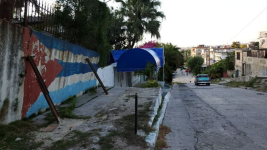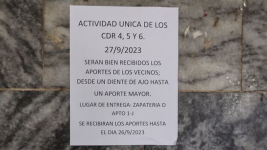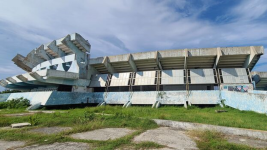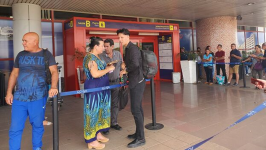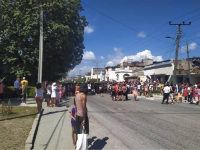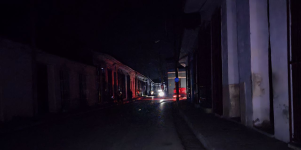The man, who stands out for his leadership, lists the reasons that have led them to the protest and adds: “From this moment on, I declare myself an opponent.” (Yosmany Mayeta Labrada-Facebook)
14ymedio, Yoani Sánchez, Generation Y, Havana, 8 May 2023 — Shirtless, with
his arm raised and making the victory sign with his fingers, we see one of the protesters who on Saturday took to the streets of Caimanera, in Guantanamo.
The man, who stands out for his leadership, lists the reasons that have led them to the protest and adds: “From this moment on, I declare myself an opponent.” Pronouncing that phrase takes twice as much courage in one of the most closely watched municipalities in Cuba.
Accustomed to living under permanent observation, the residents of Caimanera reached a degree of indignation that made them leap over the fear with which they have lived for decades. A municipality adjacent to the Guantánamo US Naval Base, where the electrified fences, the uniformed men everywhere and the large mined area that borders the military site have become part of the daily life of its inhabitants.
In addition to the continuous controls on the local population, those who want to visit Caimanera must request advance authorization from the Ministry of the Interior. To obtain permission, a compelling reason is needed and the outsider is only allowed to spend a limited time – and supervised – with his hosts. Militarization extends to all aspects of life, from the limitations on fishing on its coasts to the suffocation of the informal market, essential on the Island.



